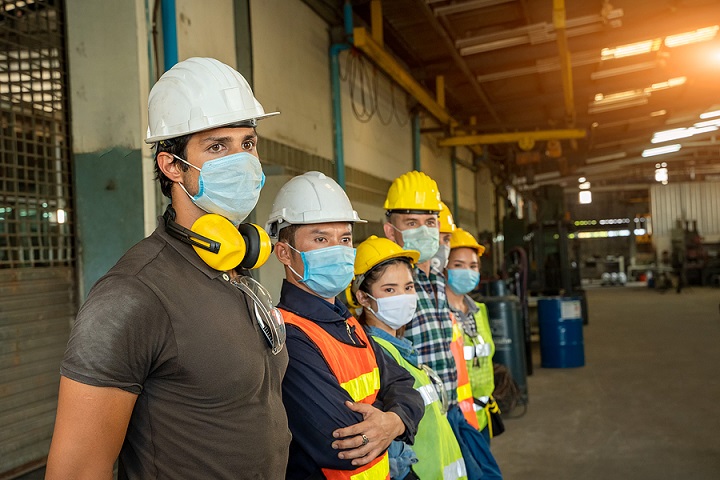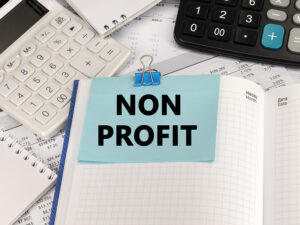How Manufacturers Can Benefit from Blockchain Technology
Kirsch CPA Group
May 13, 2021

To succeed in the 21st century, manufacturers must embrace the latest technological innovations. As part of this trend, factories around the world are becoming increasingly interrelated using blockchain technology. Although the concept is shared by businesses in various industries, it’s particularly conducive to the manufacturing sector. Here are some ideas to maximize the benefits of this technology.
What Is Blockchain?
As the name implies, blockchain is a database that relies on a chain of data blocks and is linked by cryptography. It’s designed to deter modification of data. Instead, once the data is recorded, it can’t be altered retroactively, making it difficult for a single user to gain control of the system. The implementation of Bitcoin — a type of cryptocurrency — is a prime example of how blockchain technology works.
One of the main differences between blockchain and a typical database using tables is the inherent structure. With blockchain technology, the information is stored in the blocks holding various sets of information. When the block is filled, it’s added to the existing chain. Any new data that’s compiled is stored in a new block that can be subsequently added to the chain.
This system also creates a timeline of data. When a block is completed, it’s timestamped as part of the chain, so firms can also see when information became available.
What Are the Potential Benefits?
Blockchain technology has the potential to transform the supply chain. By automating certain processes and making it virtually impossible for someone to make unauthorized changes, blockchain can streamline the supply chain, improve transparency, facilitate auditing and reduce costs.
Blockchain technology may help with the following parts of the manufacturing process:
- Identification of problems in products,
- Product designs,
- Identity management,
- Asset and procedures tracking,
- Quality assurance,
- Compliance with regulations, and
- Overall efficiency.
Blockchain technology offers enhanced visibility across the entire manufacturing spectrum, including operations at supplier warehouses, on the plant floor and all along the supply chain. As participation grows, users can benefit from the ledger structure to aggregating value-exchange transactions to improve efficiency.
Which Operational Aspects Are Improved?
Blockchain can help improve performance and product quality, in turn, leading to increased revenue and profits. Manufacturers who use blockchain typically see results in the following four areas of day-to-day business operations:
1. Quality control. The relation of blockchain technology to quality control can’t be overstated. Besides in-depth tracking up and down the supply chain, blockchain creates definitive documentation of quality checks and production data. Significantly, the database tags each product and automatically records each transaction, including quality checks and updates.
In addition, the system may be set up to provide automated quality checks that generate and write measures directly to the blockchain. This eliminates the need for other traditional checks for quality control involving suppliers. It may also reduce the number of audits required for verification of quality controls.
2. Tracking and tracing. Data is more transparent and accessible through blockchain technology. The system provides a permanent digital record of materials, parts and products, creating a single “voice of authority” for all participants. This can be critical when some of the players, typically represented by separate IT departments, don’t always have everyone’s best interests at heart.
3. Better maintenance. Blockchain creates the potential to support maintenance improvements, such as automated service agreements that can accommodate the influx of new types of machinery. With blockchain, machines can easily be scheduled for maintenance and serviced with greater speed and efficiency.
For instance, a request for machine maintenance or a replacement part may be automatically triggered. After the procedure is performed, payment processing is instantly implemented. In addition, blockchain keeps track of maintenance records. These procedures are currently still in the development phase, but they’re widely viewed as an important component of the system.
4. Intellectual property protection. Don’t ignore the role that blockchain can play in protecting intellectual property and deciding whether to produce parts in-house or with an outside supplier. The blockchain data may create a virtual certificate of authenticity, helping prove that property is owned in the event of a patent dispute.
What’s Next?
Blockchain technology may result in a new business model for manufacturers to achieve competitive advantages in 2021 and beyond.
We can help you tackle business challenges like these – schedule an appointment today
© Copyright 2021. All rights reserved.
More Resources

About The Author
Kirsch CPA Group is a full service CPA and business advisory firm helping businesses and organizations with accounting,…
Sign Up for Email Updates
Tags
Accounting & Financial News

Favorable Business Depreciation Tax Changes Under New Law
There's good news for businesses considering buying equipment and other capital assets: The One Big Beautiful Bill…

The OBBBA: What It Means For Nonprofits
On July 4, 2025, President Trump signed the One, Big, Beautiful Bill Act (OBBBA), which contains several…



